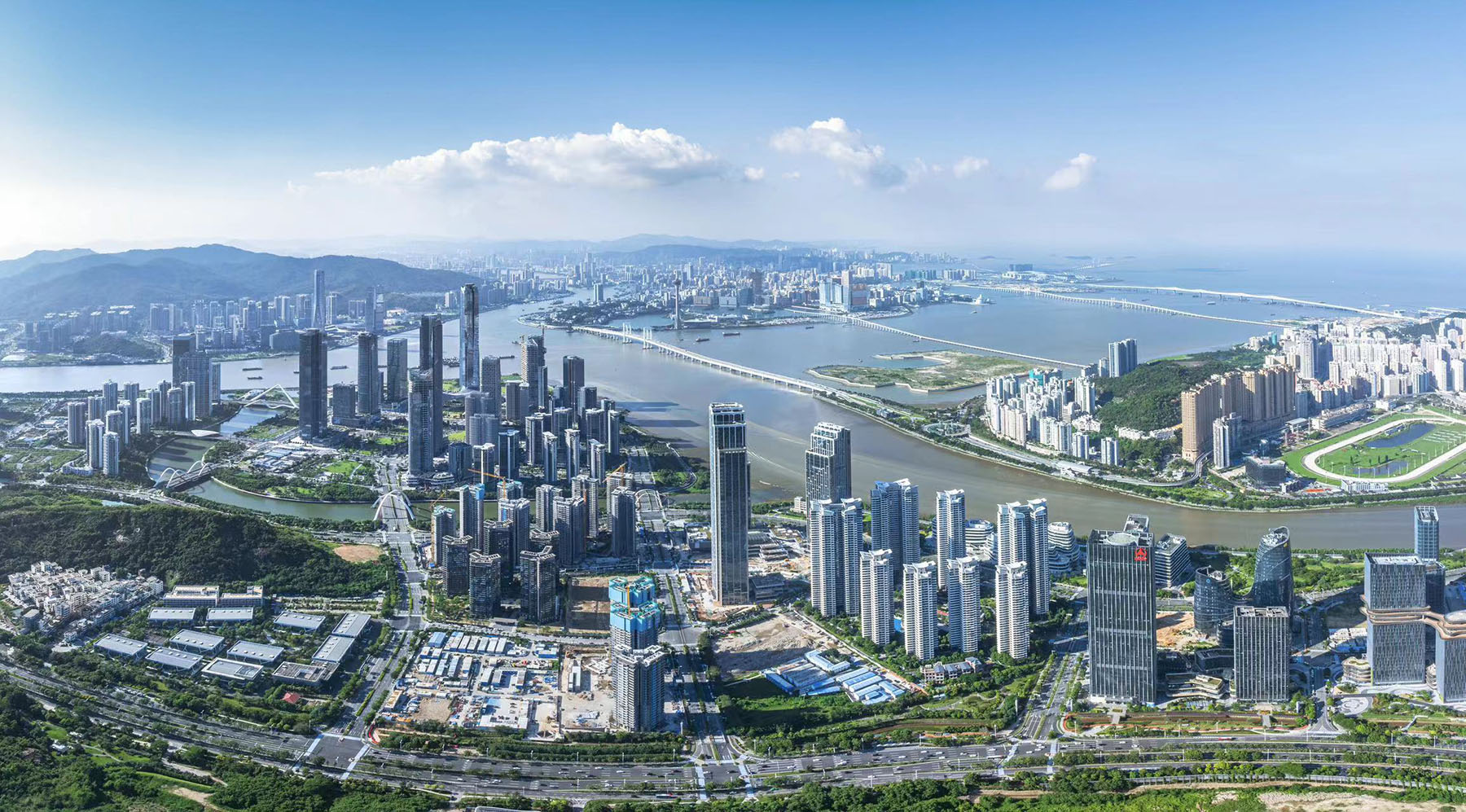
Hengqin’s thriving innovation ecosystem, bolstered by its diverse industrial platforms inside the cooperation zone, is set to incubate more cutting-edge businesses and startups that will drive Macao’s economic diversification into strategic fields such as semiconductors and healthcare, said representatives from businesses and research labs in the zone.
They shared their vision during exchanges with journalists from across China participating in a weeklong media tour to study the economic vitality and prospects of the Guangdong-Hong Kong-Macao Greater Bay Area (GBA).
On Tuesday, the journalists visited Zhuhai - the fourth and final stop of their tour after Shenzhen, Hong Kong and Macao. They toured multiple industrial clusters in the Guangdong-Macao In-Depth Cooperation Zone in Hengqin and talked with entrepreneurs to study the zone’s potential.
READ MORE: Hengqin seen offering vast opportunities for Macao, GBA integration
Liu Liang, director of the Chinese Medicine Guangdong Laboratory — which has built a branch laboratory in Hengqin’s Traditional Chinese Medicine Science and Technology Industrial Park of Co-operation between Guangdong and Macao — said the Hengqin lab is adopting a tech-driven approach to accelerate traditional Chinese Medicine (TCM) research, including an artificial-intelligence-powered platform that identifies and extracts active pharmaceutical ingredients. Liu, an academician of the Chinese Academy of Engineering, noted the system can reduce development costs by 90 percent.
“The unmanned platform performs work equivalent to 50 researchers operating simultaneously,” he said, emphasizing that China’s AI advancements present a prime opportunity to modernize TCM and enhance its global appeal.
The Hengqin lab’s proximity to Macao will help attract global talent in the future, said Liu.
Established in 2011, the 500,000-square-meter park is a joint venture between Hengqin and Macao, designated to support Macao’s economic diversification as well as the industrialization and internationalization of TCM. As of March, the park was home to 235 companies spanning sectors including TCM products, cosmetics, health supplements, medical devices, and biomedicine services.
Zhang Xu, president of the Guangdong Institute of Intelligence Science and Technology — a research body focused on brain-inspired AI chips — recalled that many buildings stood vacant when his institute moved into Hengqin International Innotech Center.
Now, just a few years later, office lights remain on deep into the night.
He described the 3.6-billion-yuan ($493.5 million) center as a prime example of cross-border cooperation in the Greater Bay Area, which fosters a robust innovation ecosystem with a forward-thinking industrial layout, and bridges research with commercialization.
“The center has already incubated five brain-computer interface startups. We believe breakthroughs in this field will only multiply over time,” said Zhang.
Albert Li, CEO of Lingyange Semiconductor – another company based in the center, noted that Hengqin has also become a crucial training ground for talent in strategic fields.
The semiconductor expert from Taiwan said his company has hosted multiple training camps for chip designers from Zhuhai and Macao, with participation exceeding 400 people each time.
Hengqin’s strategic location in the Greater Bay Area allows it to combine the research and development strengths of Macao and Hong Kong with the mainland’s supply chain advantages — a key draw for companies like his.
“We are now considering establishing an R&D center in Hong Kong,” Li revealed.
Meanwhile, Zhang Haoren, founder and CEO of TrueHealth — a healthcare company in the Macao-Hengqin Youth Entrepreneurship Valley, emphasized China’s vast potential as a market for innovative health solutions.
Zhang’s company has developed a navigation system to assist in puncture surgeries. The CEO said her business still focuses on domestic growth, but would like to expand into geopolitically-stable overseas regions if such needs arise.
READ MORE: Innovators see Macao as driver for international research exchange
“We are also working to localize key components and technologies throughout our production process,” she added.
Spanning 127,000 square meters, the incubator provides financial, legal, and tax support to ambitious innovation startups like TrueHealth. By mid-2024, the Valley had incubated over 700 projects from Hong Kong and Macao. Among its 325 current tenants, more than half specialize in technology, scientific development or high-end manufacturing.
The media group commenced its exploration from Shenzhen on April 23, visiting enterprises and cultural landmarks to analyze regional industrial advantages while holding discussions with policymakers and business leaders to highlight stakeholders' optimism about the 11-city economic cluster's development.
Contact the writers at lilei@chinadailyhk.com


